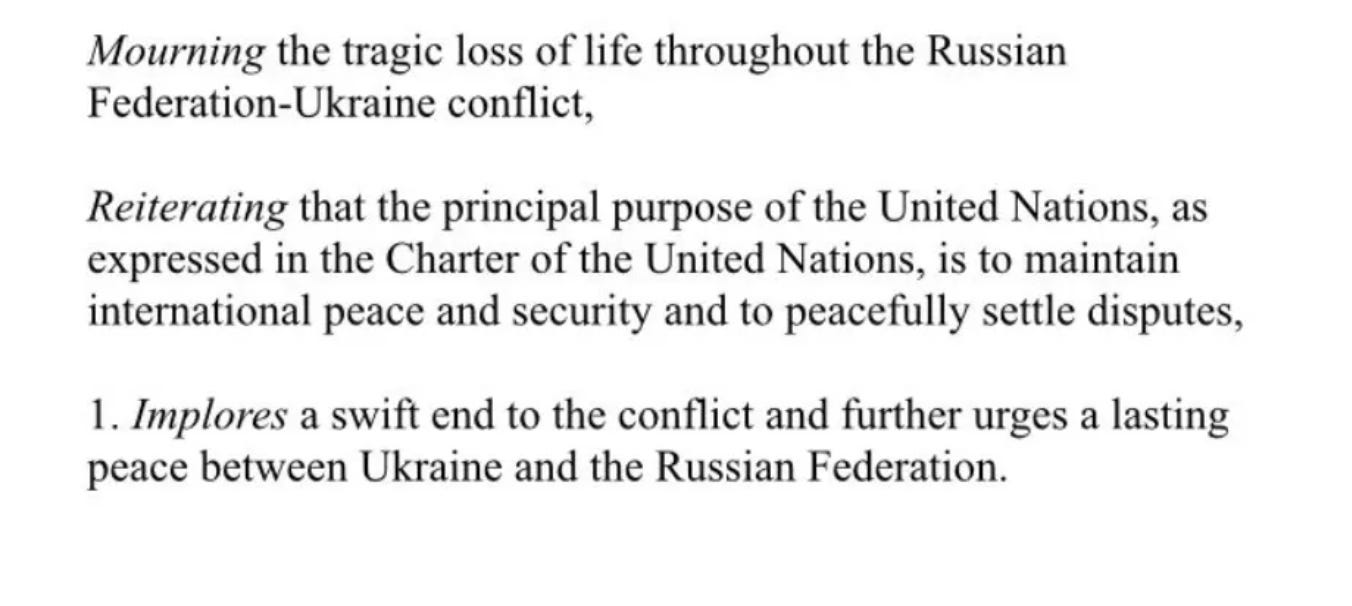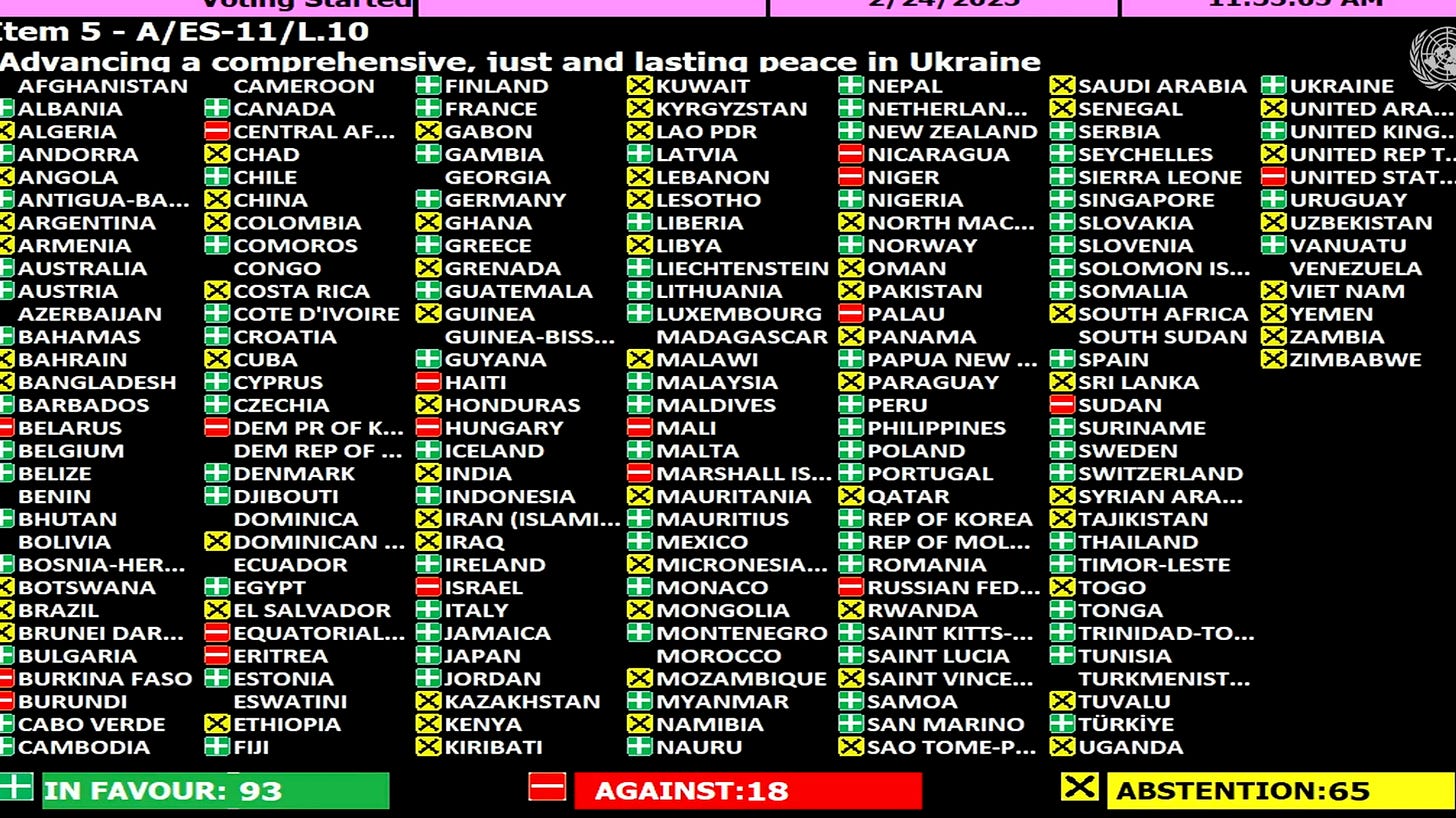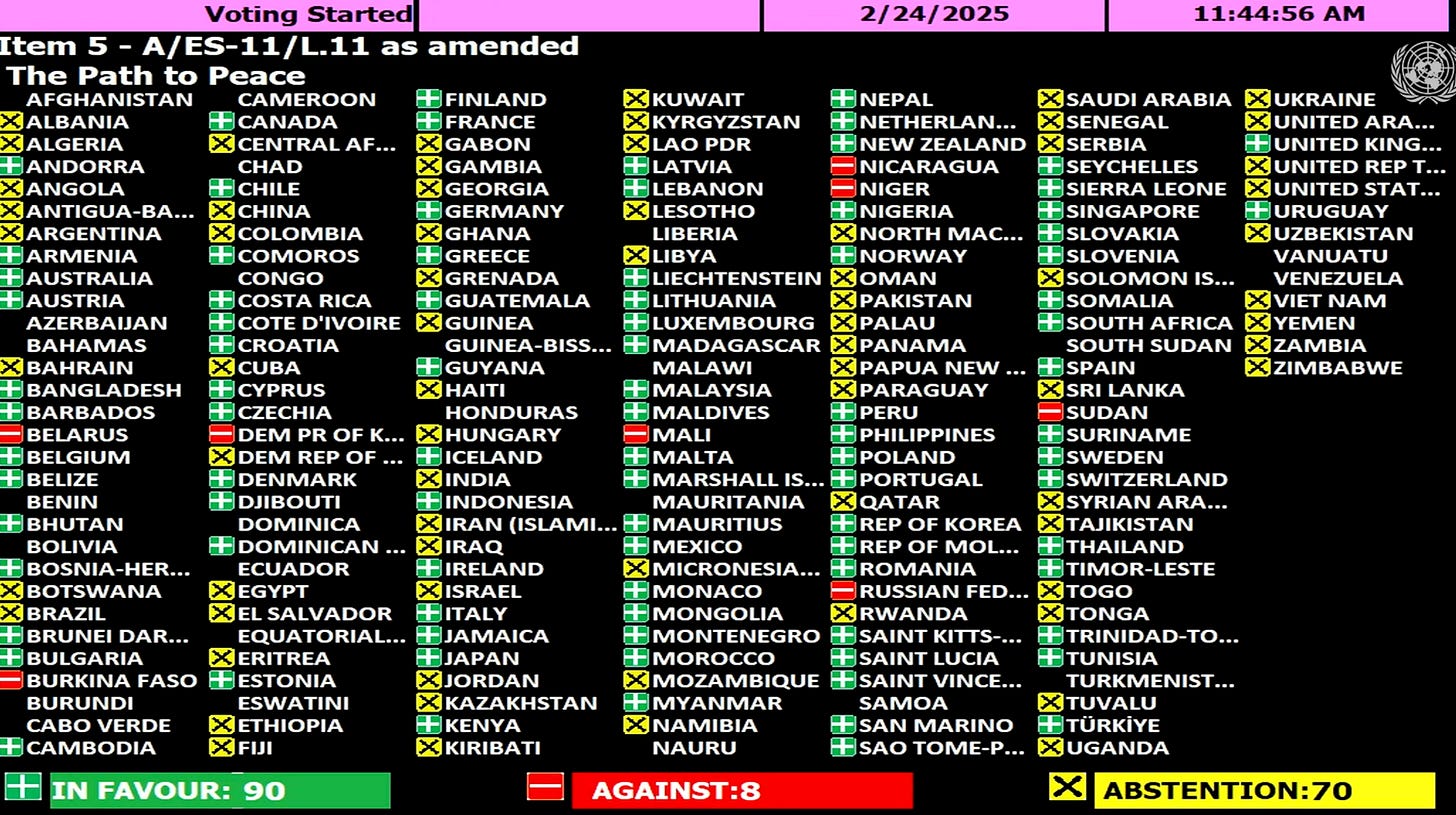The UN General Assembly met this morning to mark the third anniversary of Russia’s full-scale invasion of Ukraine. Under normal circumstances, Europe and the United States would join forces to advance a resolution that firmly denounces Russia’s aggression and forcefully defends Ukraine’s territorial integrity and sovereignty. But today’s vote was anything but normal.
There were essentially two competing texts—one drafted by the European Union and Ukraine, and the other by the United States. The EU text had been circulating for weeks and included what you might expect: it defined the conflict as Russia’s full-scale invasion of Ukraine, affirmed Ukraine’s sovereignty, and called for a just peace based on the UN Charter and Ukraine’s territorial integrity.
The American text, on the other hand, was a terse and equivocal statement that did none of those things. Here is the American resolution in its entirety:

This created a rare showdown at the UN between the United States, backed by Russia, and Europe. First, the General Assembly voted on the strongly worded European resolution. It passed, but without the overwhelming support that similar resolutions had previously garnered.

For comparison, the first resolution of this kind—put to a vote about a week after Russia invaded Ukraine in February 2022—passed with 141 countries voting in favor, 35 abstaining, and just five voting against (Russia, Belarus, North Korea, Syria, and Eritrea). This time, the United States joined those countries—and more—to try and block a resolution condemning Russia’s invasion.
Then, the General Assembly voted on a series of amendments offered by Ukraine’s allies to try and strengthen the terse American draft by including references to Ukraine’s sovereignty and clearly identifying Russia as the aggressor. Those amendments passed, so that language was added to the American text. But when the amended resolution was put to a vote, it passed without American support—the U.S. ended up abstaining from its own resolution.

We Are In a New Era
I’ve been covering the United Nations for nearly 20 years. It is hard to convey just how significant a realignment this vote signifies. First, it firmly demonstrates that Ukraine is losing support at the United Nations, carrying significant geopolitical implications that I wrote about earlier today. But more profoundly, it signals the end of an era—one in which the United States cooperated with Europe and most liberal democracies on the most fundamental principle of the UN Charter: that a country cannot simply invade another, seize its land, and topple its government.
Today’s events at the UN are not just about shifting vote counts; they reflect a broader geopolitical recalibration—one that Russia is actively shaping and the Trump administration appears willing to facilitate. The alignment of the United States with Russia signals a fundamental break with the transatlantic unity that has defined international responses to Russia’s aggression since 2022. It also underscores the waning influence of Ukraine’s cause on the world stage, a reality that will shape the trajectory of this war and its geopolitical fallout.
Today’s vote was not just a procedural moment at the UN. Rather, it may be a harbinger of changes to come. If the most powerful nations no longer stand firmly behind the basic principles of sovereignty and territorial integrity, then what remains of the system designed to prevent wars of conquest?
Get articles like this delivered directly to you inbox by subscribing to our Global Dispatches newsletter
